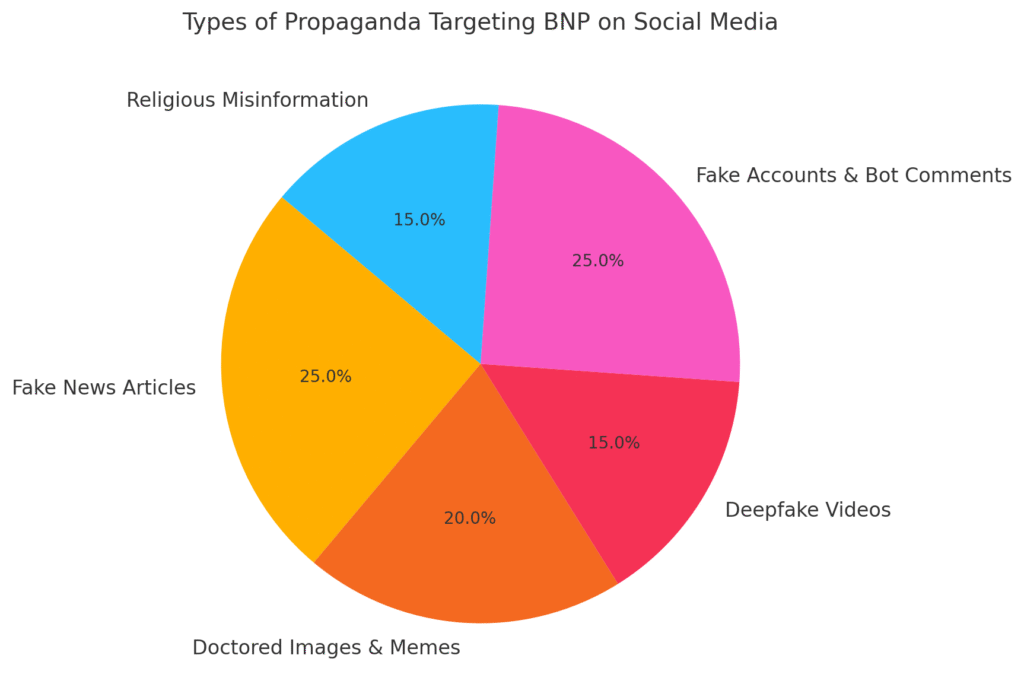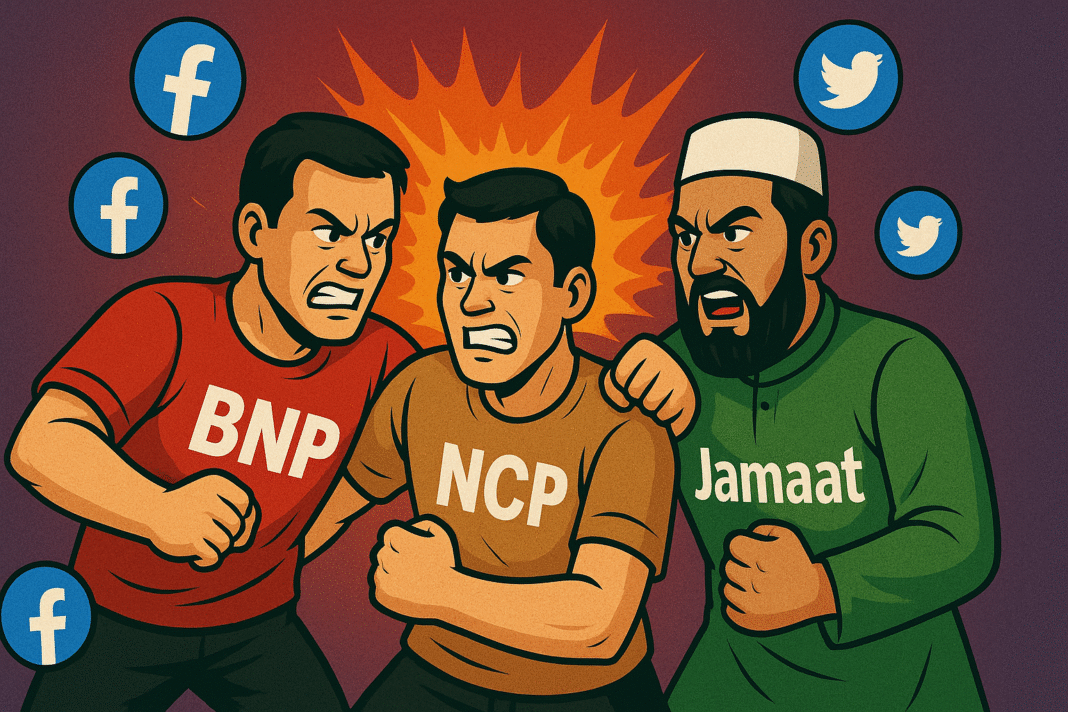Bangladesh Nationalist Party (BNP) has increasingly found itself the target of widespread online propaganda campaigns orchestrated by rival political factions, particularly from entities associated with the Nationalist Citizens Party (NCP) and ideological offshoots of Jamaat-e-Islami and its student wing, Islami Chhatra Shibir.
Over recent months, BNP’s official communications teams and digital monitoring units have flagged an uptick in fabricated content, doctored images, manipulated videos, and fake news narratives spread across Facebook, X (formerly Twitter), YouTube, and TikTok. These materials often appear designed to discredit BNP leadership, distort party positions, and erode public confidence—especially among younger voters active on digital platforms.
According to party insiders and independent digital analysts, the strategy involves:
- Fake accounts and bot networks promoting slanderous memes and misinformation.
- Deepfake videos and false statements attributed to BNP leaders, particularly targeting Tarique Rahman and Mirza Fakhrul Islam Alamgir.
- Misrepresentation of protest footage, portraying BNP activities as disorganized or violent, despite evidence to the contrary.
- Use of religious sentiment to paint BNP as “anti-Islamic” or “foreign-controlled,” tactics believed to be spearheaded by remnants of the Jamaat-Shibir digital ecosystem.
Some of the disinformation campaigns bear hallmarks of “astroturfing” – creating the illusion of grassroots public backlash through artificially generated comments and shares. Analysts say these tactics mirror those seen during election build-ups in other regions where political narratives are shaped by algorithmic reach rather than facts.

Despite being largely absent from mainstream political visibility since their organizational ban from elections, Jamaat-Shibir activists continue to operate in stealth through proxy accounts and alternative branding. BNP sources allege that some elements within Jamaat’s youth wing are exploiting this low profile to attack BNP under the guise of “Islamic nationalist” activism—accusing the party of abandoning Islamic values or compromising with secular groups.
This covert hostility is particularly perplexing given the historical political alignment BNP once held with Jamaat-e-Islami. Analysts suggest this is part of Jamaat’s long-term strategy to create a new power base by weakening both major parties from within digital discourse.
Meanwhile, NCP (Nationalist Citizens Party), a breakaway nationalist coalition gaining traction among some youth and intellectuals, has positioned itself as a “clean nationalist” alternative. Their digital strategy has included regular attacks on BNP, labeling the party as “obsolete,” “corrupt,” or “incapable of resisting authoritarianism.” NCP-affiliated pages often use subtle language and satire, making their content harder to flag or remove.
Some NCP leaders have denied any organized propaganda, claiming independent supporters may be expressing frustration. However, evidence from digital forensics suggests coordinated timing, shared graphic templates, and identical captioning—indicators of central planning.
BNP leaders have begun publicly calling out these campaigns, demanding fair play and digital accountability. In internal meetings, party strategists have emphasized the need for:
- Real-time fact-checking units.
- Improved media literacy among supporters.
- Stronger collaboration with Facebook and Google’s regional policy teams.
“This is not just a fight for political space, it’s a war for truth,” said a senior BNP communications official. “What we’re seeing is a weaponization of social media by fringe elements trying to manipulate public perception through lies.”
Digital experts agree that the issue raises a broader concern about Bangladesh’s democratic process. With the 2026 general election approaching, unchecked disinformation may influence voter behavior, suppress legitimate debate, and further polarize society.
The BNP’s digital challenges are emblematic of the new battlefield in modern politics—where misinformation can go viral faster than any press briefing or policy statement. As the political environment heats up, so too does the digital warfare, and unless platforms, regulators, and parties act with transparency and urgency, the truth may be the first casualty.

